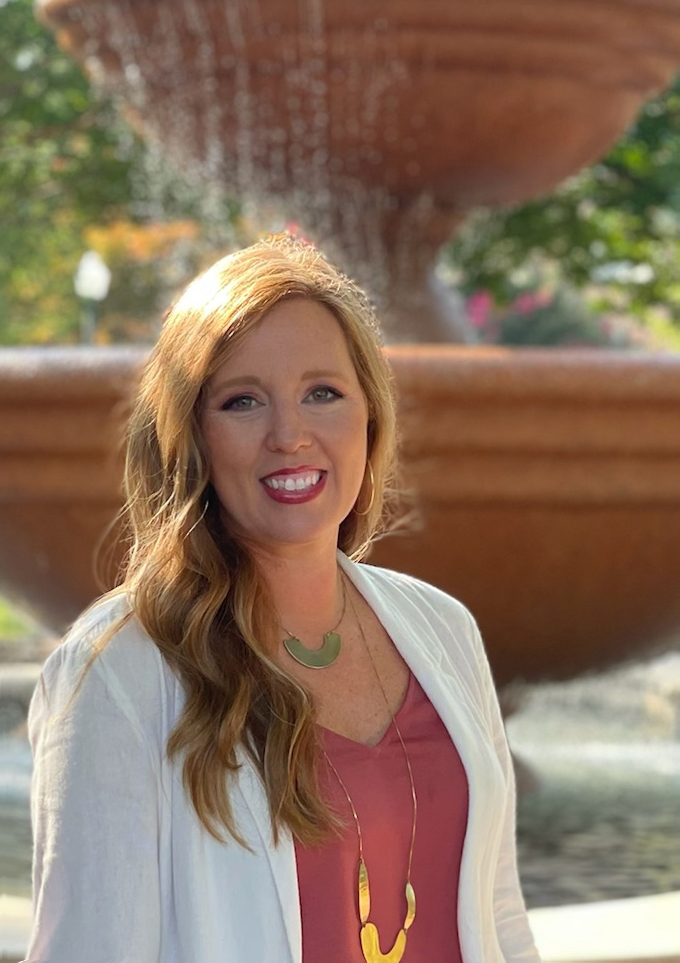Featured
Telehealth Counseling Available for UM Regional Campus Students, Staff

By Pam Starling
University of Mississippi Communications

Taking care of your mental health has been a major theme surrounding this summer’s Olympic Games in Tokyo. Gymnast Simone Biles struggled with mental health issues that left her feeling overwhelmed and scared for her own safety.
“Whenever you get in a high-stress situation, you kind of freak out and don’t really know how to handle all of those emotions, especially at the Olympic Games,” Biles told reporters at a news conference last month in Tokyo. “I have to focus on my mental health and not jeopardize my health and well-being.”
Students can have similar feelings of being overwhelmed and unsure how to navigate through anxiety, depression, stress and other issues that may affect their college coursework, said Katie Harrison, assistant director of the University of Mississippi Counseling Center.
“Right now is a great time to discuss the importance of paying attention to your own mental health,” Harrison said. “Sometimes you have to take care of you and realize that you don’t have to suffer alone; you can reach out to someone.
“If the best gymnast in the world who is strong mentally, physically and emotionally can accept help, so can we.”
Harrison serves as the mental health telecounselor for students at the university’s regional campuses in Booneville, Grenada, Southaven, Tupelo and Rankin County.
“Our regional campus students face issues just like Oxford campus students do,” Harrison said. “They need to know that there is someone they can turn to when things get tough.”
This year, regional campus students have an opportunity to meet with a counselor every other week for up to a year, if needed. Harrison said that, on average, she may meet with a student seven to eight times as they work through issues they may be facing.
A transfer student herself, Harrison attended Northwest Community College before transferring for her junior and senior years on the UM Oxford campus, where she completed her bachelor’s degree in psychology in 2004. After working in community mental health for a few years, she returned to Ole Miss to complete her master’s degree in counseling in 2007.
Harrison said it was during this time as a graduate student that she learned firsthand about the benefits of counseling.
“There was this idea that I had to be on top of everything and had to be as smart as everyone else,” Harrison said. “In reality, everyone else in my program was feeling the same way. No one was any smarter than anyone else. It was really just ‘Can we get through this,’ and ‘Can we maintain until the end?’
“I tell graduate students it is less about intelligence and more about endurance. You have to figure out how to get through it while balancing everything, but you don’t have to be perfect.”
Harrison brought that firsthand knowledge of student struggles with her when she began working as a counselor at the university in 2017.
“I had a difficult time taking care of my own mental health in graduate school,” she said. “You can be as smart or as strong as you want to be, but you don’t have to struggle.
“At some point in life, we all go through something that is bigger than us. The hardest part is just saying that this is overwhelming, and I need help.”
It’s normal for students to experience levels of stress in college, Harrison said.
“One of the main things for students to realize is that they are not alone in this,” she said. “People tread water thinking they are the only ones who are struggling. Regional campus students are balancing so much between schoolwork, families, jobs and other life responsibilities.
“We try to help them see that they are not the only ones, and there is help as they are learning to balance everything. The goal of counseling is to help students get to a place where they can be successful.”
Typically, Ole Miss students take advantage of counseling when they need assistance adjusting in school, handling the transition to the university setting or experiencing any number of issues including anxiety, family or domestic issues, substance abuse and more.
Students who attend a UM regional campus and would like to find out more can call the Counseling Center at 662-915-3784 to set up an appointment with Harrison. Appointments are conducted privately through Zoom and appointment times are flexible.
For students who may need a private space or internet access, each UM campus is working to identify a private location and computer access on campus.
For emergencies, students can call the UM Counseling Center and be connected with a mental health practitioner, including on nights, weekends, and holidays.
Harrison also reminds students that practicing good self-care is another way they can take care of their mental health.
She advises students to have social supports, such as friends and family, for a safe place to vent. She also encourages students not to give up hobbies, eating well, exercising and sleep during especially stressful times.
“When we are in the throes of being stressed out about school and other things going on in our lives, we don’t always practice the best ways to take care of ourselves; those little things fall by the wayside,” Harrison said.
“Whether you’re a world-class athlete or a senior at Ole Miss, everyone faces struggles and can benefit from assistance and taking care of themselves.”






















































